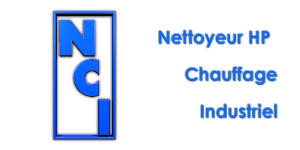Understanding Deposits: A Comprehensive Guide for U.S. Users
What Is a Deposit and Why Does It Matter?
A deposit refers to funds placed into a financial institution, such as a bank, for safekeeping or investment. For U.S. users, understanding bank deposits is crucial for managing personal finances effectively. Whether you’re saving for emergencies, planning for retirement, or simply looking to grow your money, deposits form the foundation of secure financial practices. They also play a vital role in the broader economy, as they enable banks to lend money to businesses and individuals.
The Different Types of Deposits You Should Know About
There are several types of deposits available in the U.S., each designed to meet different financial goals. These include savings accounts, checking accounts, certificates of deposit (CDs), and money market accounts. Savings accounts offer flexibility, while CDs provide higher deposit interest rates in exchange for locking in funds for a set period. Understanding these options helps you choose the best fit for your needs.
- Savings Accounts: Ideal for short-term goals with easy access to funds.
- Certificates of Deposit (CDs): Offer fixed deposit interest rates for longer-term commitments.
- Checking Accounts: Designed for daily transactions with minimal restrictions.
How Deposits Work in the U.S. Financial System
In the U.S., deposits are protected by federal insurance, such as the Federal Deposit Insurance Corporation (FDIC). This ensures that even if a bank fails, your bank deposits up to $250,000 remain secure. Banks use these deposits to fund loans, which in turn support economic growth. However, the level of deposit security depends on the institution and the type of account chosen.
Key Features of Secure Deposit Accounts
Secure deposit accounts prioritize deposit security through features like FDIC insurance, low fees, and competitive deposit interest rates. When selecting an account, look for institutions with strong reputations and transparent terms. For those interested in digital banking, online deposit options have become increasingly popular, offering convenience and real-time access to funds. El Royale Casino Review provides insights into how online platforms handle financial transactions securely, though it’s important to distinguish between traditional banking and gaming services.
Deposits vs. Investments: What’s the Difference?
While both deposits and investments aim to grow wealth, they differ significantly in risk and return. Deposits, especially in insured accounts, offer lower deposit interest rates but near-zero risk. In contrast, investments like stocks or mutual funds carry higher risk but potential for greater returns. Understanding this distinction helps you align your financial strategy with your risk tolerance.
Common Myths About Deposits Debunked
One common myth is that types of deposits are all the same, but in reality, they vary widely in terms of accessibility, interest, and security. Another misconception is that deposit security is guaranteed in all cases, but it’s essential to verify coverage limits and institutional stability. Lastly, some believe online deposit methods are less secure than traditional banking, yet advancements in encryption and authentication have made digital transactions highly reliable.
- Myth 1: All deposits earn the same interest rate. Reality: Rates vary based on account type and institution.
- Myth 2: Deposits are entirely risk-free. Reality: While insured, exceeding coverage limits exposes funds to risk.
Best Practices for Managing Your Deposits
To maximize the benefits of your bank deposits, diversify across multiple accounts and institutions to spread risk. Regularly review deposit interest rates and compare offers from different banks. Avoid tying too much capital to long-term CDs unless aligned with specific goals. Additionally, monitor fees associated with online deposit platforms to ensure they don’t erode your savings.
How to Choose the Right Deposit Option for Your Needs
Your choice of types of deposits should reflect your financial priorities. If liquidity is critical, opt for savings or checking accounts. For higher returns with moderate risk, CDs might suit better. Prioritize deposit security by verifying FDIC coverage and researching the institution’s reliability. Consider online deposit solutions if convenience outweighs the need for physical branches.
The Role of Interest Rates in Deposit Products
Deposit interest rates directly influence how quickly your savings grow. Higher rates benefit savers but often come with trade-offs like restricted access or penalties for early withdrawal. Monitoring central bank policies and economic trends helps anticipate shifts in deposit interest rates. For example, rising inflation may prompt banks to increase rates to maintain profitability.
Protecting Your Deposits: Security Measures to Consider
Deposit security begins with choosing reputable institutions backed by FDIC insurance. Enable two-factor authentication for online deposit accounts and avoid sharing sensitive information. Regularly review account statements for unauthorized transactions. Additionally, limit the amount deposited in any single institution to stay within FDIC coverage thresholds.
Frequently Asked Questions About Deposits
Q: Are all deposits insured? A: Only those held at FDIC-insured institutions up to $250,000 per account. Q: Can I withdraw funds from a CD anytime? A: Typically no, unless penalties apply for early withdrawal. Q: How do deposit interest rates compare to bonds? A: Bonds generally offer higher yields but involve more risk.
- Tip: Always read the fine print regarding types of deposits before committing funds.
- Tip: Use online deposit tools for seamless transfers between accounts.
- Tip: Reinvest earnings regularly to leverage compound growth.
Trends in Deposit Management for 2025
In 2025, trends in deposit management emphasize automation and personalized financial planning. Apps now offer AI-driven insights to optimize deposit interest rates based on individual profiles. Online deposit platforms are integrating blockchain technology for enhanced transparency. Meanwhile, hybrid accounts combining savings and investment features are gaining traction, reflecting evolving consumer preferences for flexibility and growth opportunities.
Posted in: Non classé
Leave a Comment (0) →